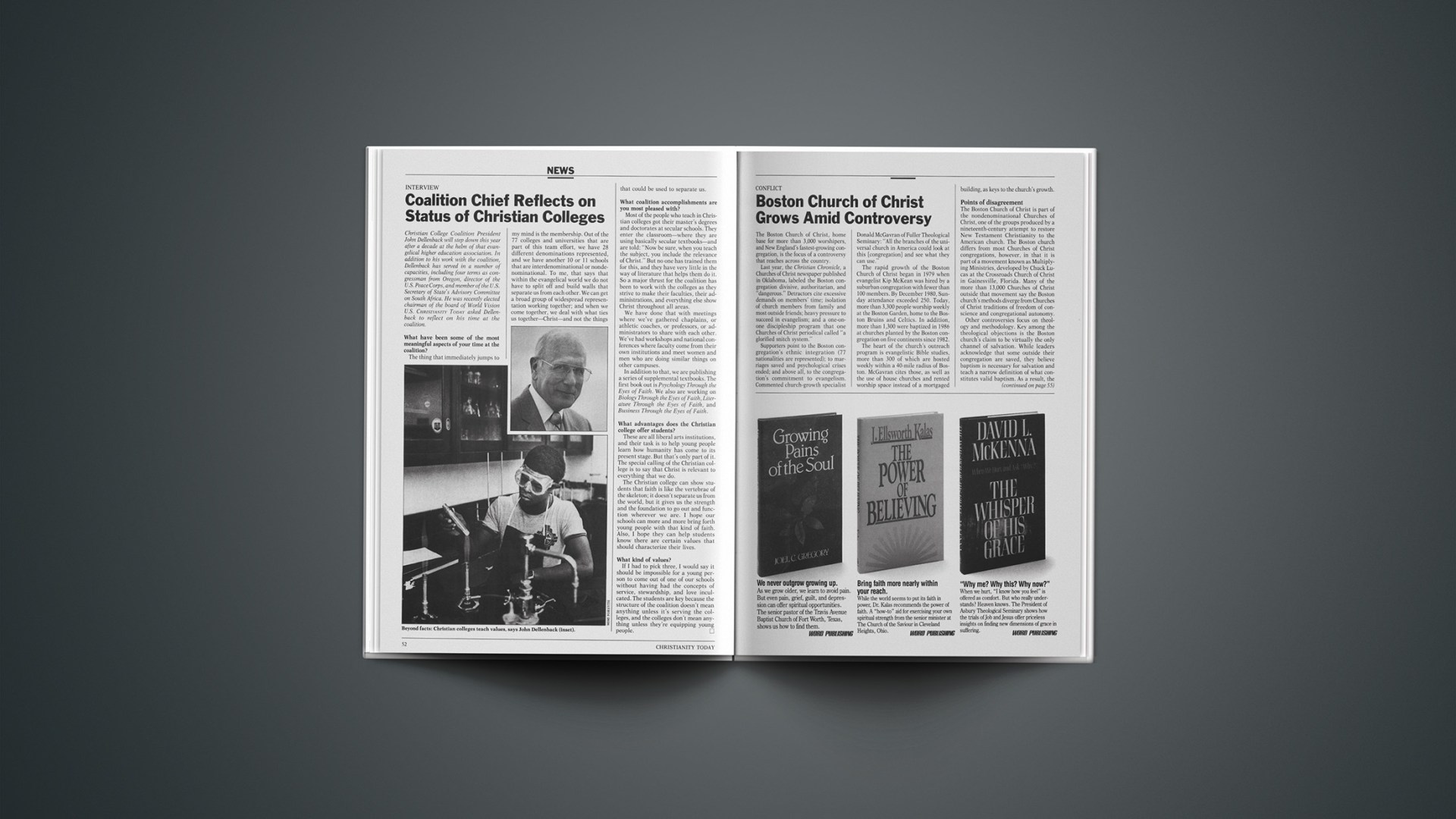Christian College Coalition President John Dellenback will step down this year after a decade at the helm of that evangelical higher education association. In addition to his work with the coalition, Dellenback has served in a number of capacities, including four terms as congressman from Oregon, director of the U.S. Peace Corps, and member of the U.S. Secretary of State’s Advisory Committee on South Africa. He was recently elected chairman of the board of World Vision U.S. CHRISTIANITY TODAY asked Dellenback to reflect on his time at the coalition.
What have been some of the most meaningful aspects of your time at the coalition?
The thing that immediately jumps to my mind is the membership. Out of the 77 colleges and universities that are part of this team effort, we have 28 different denominations represented, and we have another 10 or 11 schools that are interdenominational or nondenominational. To me, that says that within the evangelical world we do not have to split off and build walls that separate us from each other. We can get a broad group of widespread representation working together; and when we come together, we deal with what ties us together—Christ—and not the things that could be used to separate us.
What coalition accomplishments are you most pleased with?
Most of the people who teach in Christian colleges got their master’s degrees and doctorates at secular schools. They enter the classroom—where they are using basically secular textbooks—and are told: “Now be sure, when you teach the subject, you include the relevance of Christ.” But no one has trained them for this, and they have very little in the way of literature that helps them do it. So a major thrust for the coalition has been to work with the colleges as they strive to make their faculties, their administrations, and everything else show Christ throughout all areas.
We have done that with meetings where we’ve gathered chaplains, or athletic coaches, or professors, or administrators to share with each other. We’ve had workshops and national conferences where faculty come from their own institutions and meet women and men who are doing similar things on other campuses.
In addition to that, we are publishing a series of supplemental textbooks. The first book out is Psychology Through the Eyes of Faith. We also are working on Biology Through the Eyes of Faith, Literature Through the Eyes of Faith, and Business Through the Eyes of Faith.
What advantages does the Christian college offer students?
These are all liberal arts institutions, and their task is to help young people learn how humanity has come to its present stage. But that’s only part of it. The special calling of the Christian college is to say that Christ is relevant to everything that we do.
The Christian college can show students that faith is like the vertebrae of the skeleton; it doesn’t separate us from the world, but it gives us the strength and the foundation to go out and function wherever we are. I hope our schools can more and more bring forth young people with that kind of faith. Also, I hope they can help students know there are certain values that should characterize their lives.
What kind of values?
If I had to pick three, I would say it should be impossible for a young person to come out of one of our schools without having had the concepts of service, stewardship, and love inculcated. The students are key because the structure of the coalition doesn’t mean anything unless it’s serving the colleges, and the colleges don’t mean anything unless they’re equipping young people.










